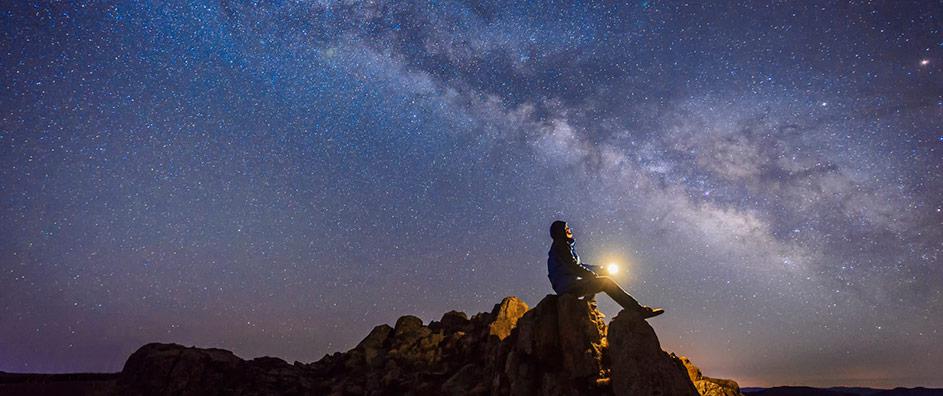In the contemporary discourse of human existence, the duality of science and spirituality often emerges as a dichotomy, pitting empirical rationalism against transcendental beliefs. Yet, does this division accurately reflect the complexities of our understanding of reality? Can a harmonious synthesis between these two seemingly disparate realms reveal profound insights into our collective journey? The Baha’i teachings offer a refreshing perspective on this intricate interplay, advocating for a synthesis that celebrates both the rational and the mystical.
At the heart of Baha’i philosophy lies the fundamental belief that science and religion are complementary forces in the pursuit of truth. This perspective posits that while science elucidates the physical world and uncovers the laws governing it, spirituality provides the moral framework that lends meaning to human existence. Thus, finding equilibrium between these dimensions is not merely an intellectual exercise, but an essential endeavor for the evolution of humanity.
To embark on this journey of synthesizing science and spirituality, one must first acknowledge the intrinsic value of both realms. Science, characterized by observation, experimentation, and validation, significantly enhances our understanding of the universe. Breakthroughs in fields such as physics, biology, and technology have revolutionized how we perceive our surroundings and address challenges facing humanity. However, this empirical approach, while invaluable, often encounters limitations when grappling with existential questions, such as the nature of consciousness or the purpose of life itself.
On the other hand, spirituality—the pursuit of profound truths that transcend physical reality—invites us to explore dimensions beyond material existence. Through prayer, meditation, and introspection, individuals glean insights about their roles in the grand tapestry of life. The Baha’i teachings emphasize that true knowledge is a synthesis of both material and spiritual realms, advocating for a worldview that embraces the complexities of existence.
The challenge, therefore, lies in reconciling the methodologies and epistemologies inherent in both science and spirituality. This reconciliation necessitates a shift in perspective—acknowledging that these realms do not stand in opposition, but rather illuminate different facets of the same truth. The Baha’i teachings assert that there is no conflict between genuine science and true religion; rather, one enriches the other in the relentless quest for understanding.
Engagement with this dialogue is pivotal. To cultivate a balanced perspective, individuals are encouraged to meditate on the harmony that exists between scientific inquiry and spiritual understanding. For instance, consider the implications of scientific discoveries on ethical considerations within society. Advances in genetics and biotechnology prompt us to confront moral questions regarding human identity and dignity. Herein lies the intersection of science and spirituality—where empirical evidence must be weighed against ethical frameworks steeped in spiritual wisdom.
This synthesis is not solely theoretical; it manifests in practical applications across various domains. In education, for instance, a curriculum that harmonizes scientific literacy with ethical teachings cultivates well-rounded individuals who can navigate the complexities of modernity. Such a holistic educational approach fosters critical thinking and moral reasoning, equipping learners to face societal challenges with a balanced perspective.
Moreover, the environment provides a prime example of the importance of striking a balance between scientific understanding and spiritual stewardship. As the planet grapples with the ramifications of climate change, the dialogue surrounding ecological preservation becomes imperative. Scientific research elucidates the causes and effects of environmental degradation, while spirituality encourages a sense of responsibility for the stewardship of the Earth. Embracing this duality encourages a profound reverence for nature, fostering sustainable practices that honor both empirical insight and spiritual duty.
Furthermore, in personal life, integrating science and spirituality can facilitate a more comprehensive approach to health and well-being. The scientific community recognizes the significance of mental health, exploring the physiological impacts of stress, anxiety, and emotional turmoil. On the other hand, spiritual practices such as mindfulness and meditation harness the transformative power of introspection to promote inner peace. By integrating these methodologies, individuals can cultivate both physical and spiritual well-being, enriching their daily experiences.
Nevertheless, the challenge persists: how do we effectively communicate this synthesis in a world often polarized by competing narratives? Engaging in open dialogues, facilitating interfaith discussions, and fostering collaborative initiatives can bridge the gap between scientific and spiritual communities. Baha’i principles advocate for unity in diversity; thus, creating platforms for sharing insights across disciplines can cultivate understanding and cooperation.
In the face of contemporary challenges—from social inequities to environmental crises—it is imperative that we embrace a holistic worldview that recognizes the interdependence of science and spirituality. By fostering a culture of inquiry that honors both empirical evidence and spiritual wisdom, we can navigate the tumultuous terrain of the modern age with grace and purpose.
Ultimately, the pursuit of knowledge—whether through science or spirituality—should aim not merely for the accumulation of facts but for the elevation of the human spirit. In this quest, the Baha’i teachings illuminate a path towards balance, encouraging a dialogue that seeks to harmonize differing perspectives. As we continue this exploration, may we cultivate a profound understanding of the unity that exists within the multifaceted nature of reality, embracing both the scientific and the spiritual as integral aspects of our shared journey.
